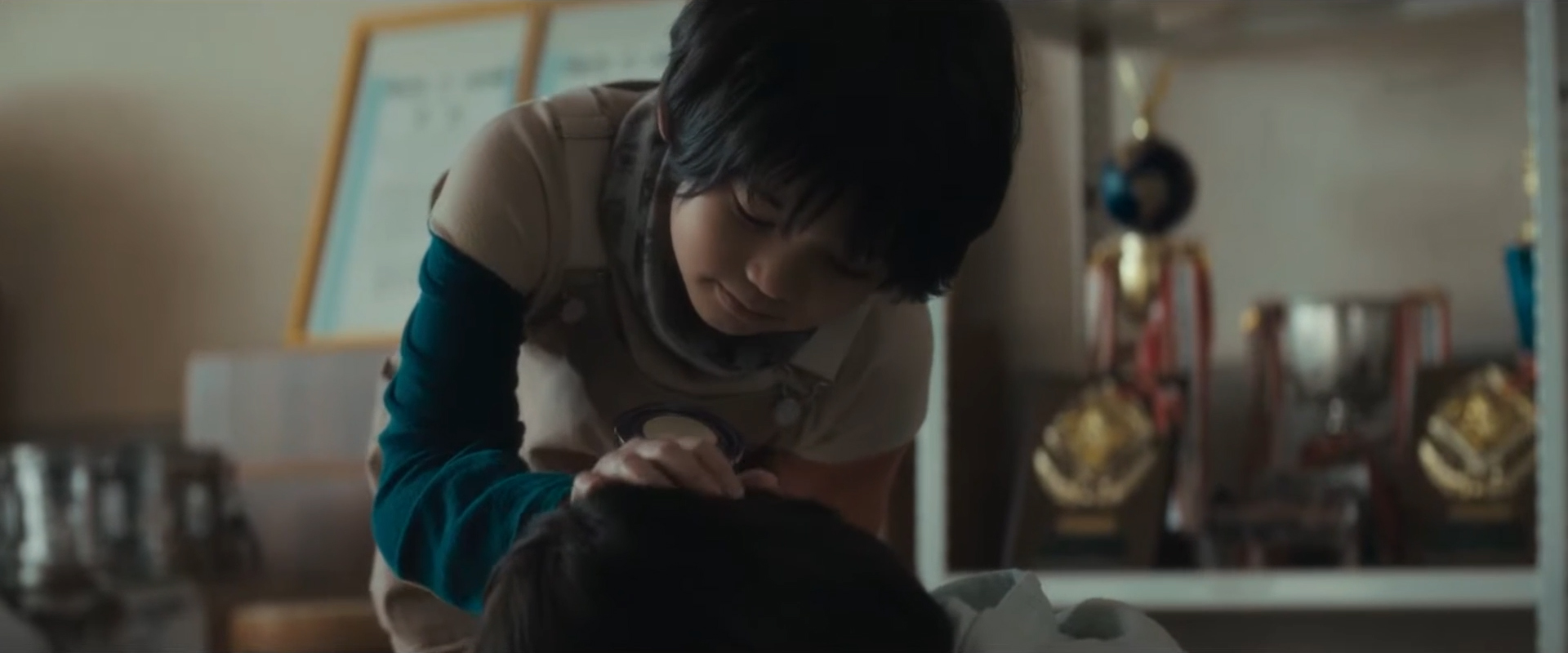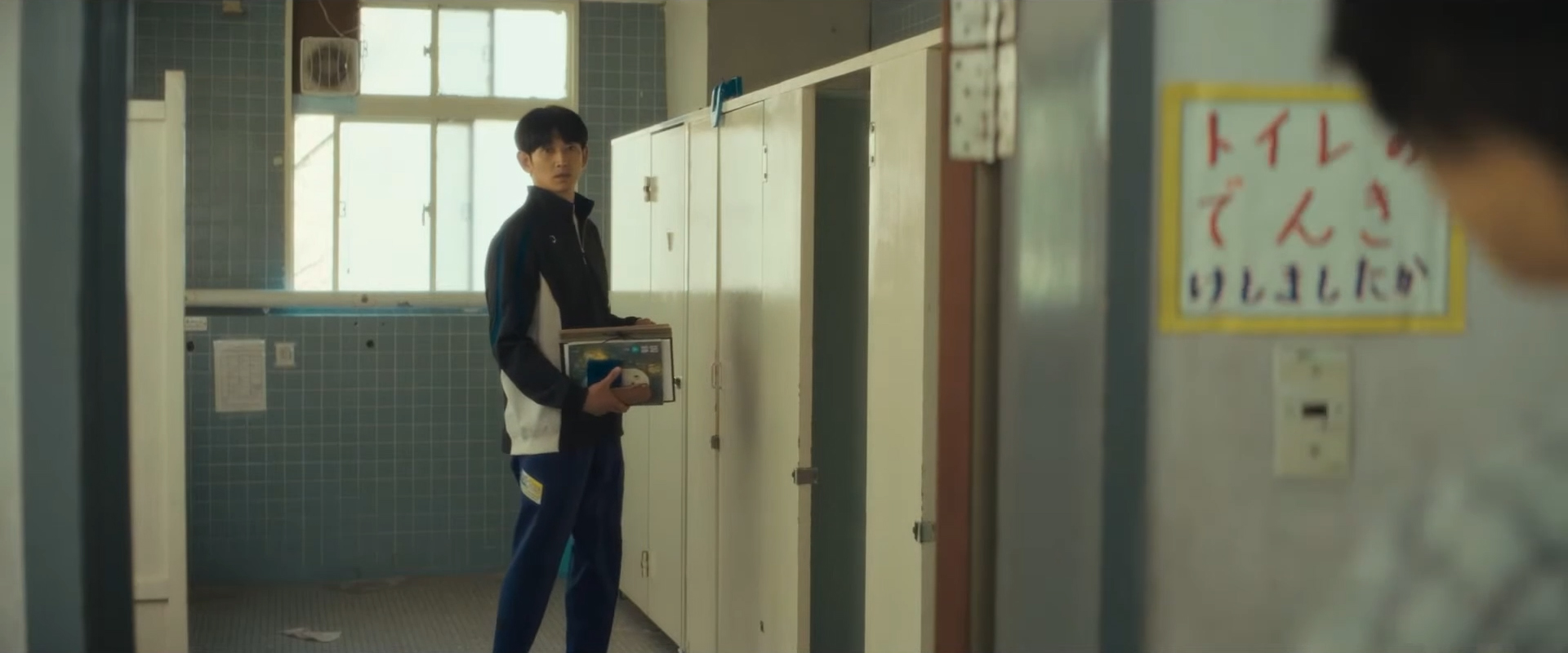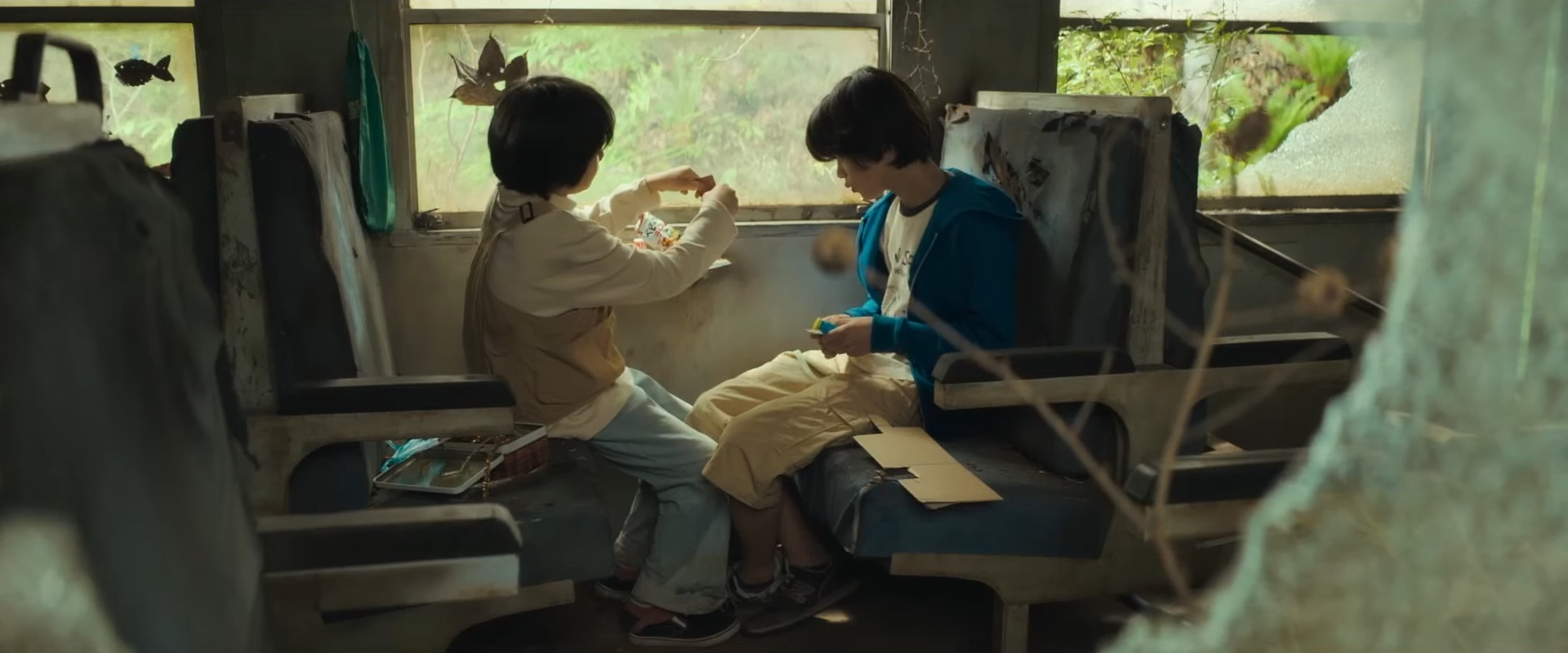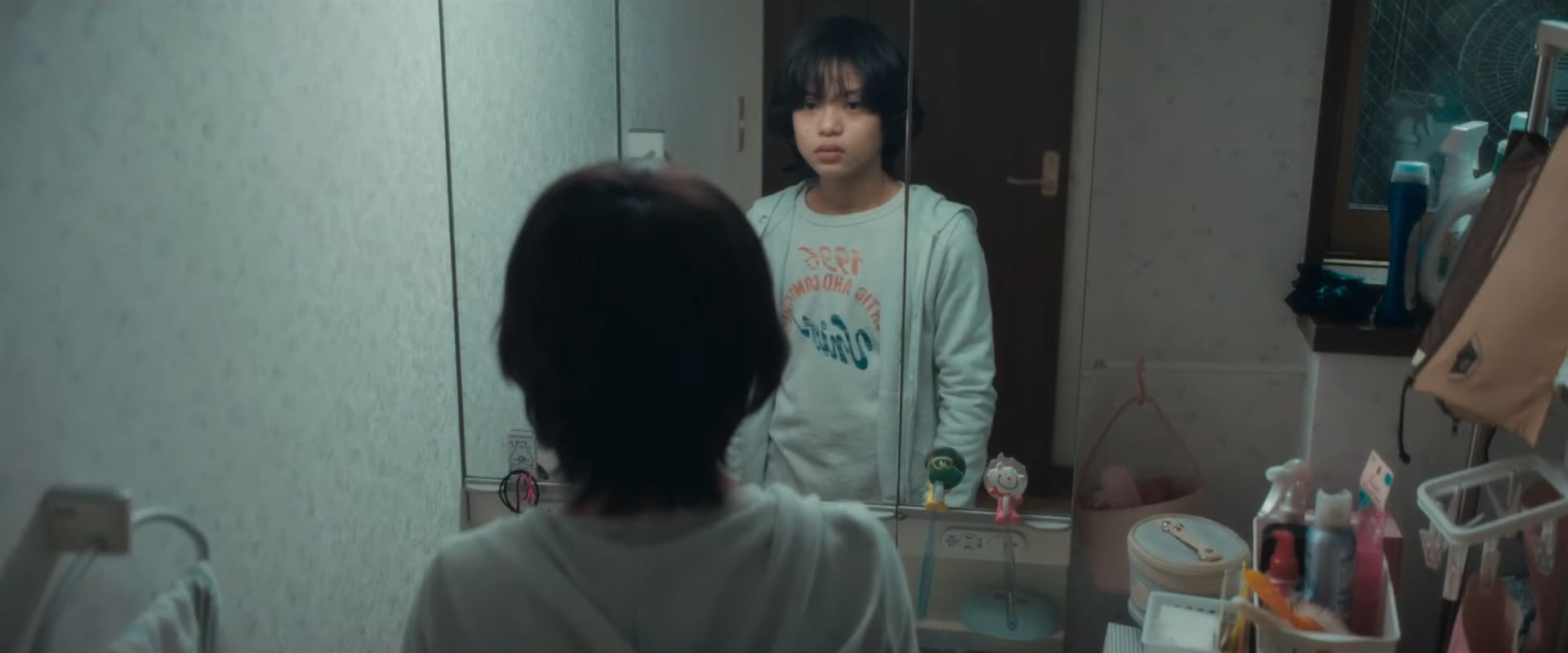Jake Sulpice
☆ Monster
Watched on December 16, 2023

Hirokazu Kore-eda’s Monster is an unquestionable masterpiece, not just among Japanese film but cinema as a whole. The dramatic, mysterious thriller is a kaleidoscope of childhood, reflecting fractured scenes of innocence, confusion, and the enormous shadows that loom between. It’s a film whispered in hushed tones, a tapestry woven from threads of truth, each perspective a knot that tightens the central mystery, a mother’s desperate search for answers after her son’s world unravels. Rather than showing demonic ghouls or evil creatures, Kore-eda dissects a much more insidious monster: the one that lurks within the folds of human misunderstanding, prejudice, and pain.
Who is the monster?
The story starts with a spark, a flicker of concern in a mother’s eyes. Saori, a single mother navigating the choppy waters of raising a young son, is concerned when her fifth-grade son, Minato, suddenly withdraws as a vibrant young boy to a shell of fear punctured by nightmares and gradual fearfulness. After learning that his teacher had physically hurt him during class, Saori is set adrift on a quest for answers. Mr. Hori, Minato’s enigmatic school teacher, hides several complexities and motivations as he is caught in the crosshairs of accusation and self-doubt.
As for the plot, that’s as much as I will reveal; it truly is one of those films that requires you to go in as blind as possible. Monster is full of countless twists and turns that leave you feeling like you know what legitimately took place until the next revelation unfolds. It takes you on a relentless, unforgettably emotional journey that reels you in from the beginning, only compounding on its breathtakingly touching qualities.

In its purest form, Monster is an exploration of empathy rather than blame or retribution. Kore-eda, with screenwriter Yuji Sakamoto, calls you to examine the hidden stories behind every face, the monsters we create from fear and misunderstanding. The narrative is linear, to a very abrupt extent, taking noticeable and considerable influence from Akira Kurosawa’s innovative Samurai drama, Rashomon. The film’s story is told like a reflective puzzle, shifting perspectives like fractured shards of a broken mirror. Each viewpoint adds a new layer, a new shade to the central mystery until the truth reveals itself not as a singular monster but as a mirage of misunderstanding, missed opportunities, and the messy complexity of human connection.
Mom, don’t feel sorry for me.
The cinematography is stunning, showcasing Japan’s natural beauty through a lens that captures it with remarkable care. The framing of each shot is meticulously calculated; paired with the timing of each perspective, the film deliberately exposes each event while allowing the viewer room to breathe and reflect. Ryuichi Sakamoto’s final score before his unfortunate passing sets a pristine, passionate tone, reflecting each scene’s intent with ease. I could feel the tears building during certain scenes of my viewing, but they failed to hold once the somber music began, every time, like clockwork.
Sakura Ando’s portrayal as a single mother, a powerhouse of maternal ferocity, could not have been performed better. Her eyes, etched with worry and primal fear, dagger into the soul, striking both us with children and those without. Eita Nagayama’s bewildering yet genuine role as the school teacher emphasized how sincerely the smallest confusions can misconstrue good intentions. And, of course, Soya Kurokawa and Hinata Hiiragi’s performances as Minato and Yori, respectively, cannot be understated. Finding two actors of their young age that can depict such intricately moving characters as they did is a monumental feat in itself. Their back-and-forth relationship reminds you of your friendships during youth — going on adventures through nature, playing games with one another for hours, and exploring the world around you like it’s yours for the taking.

A slow burn, Monster is a film that rewards patience and introspection. It’s not a thriller in the traditional sense but a slow descent into the labyrinth that is human psychology. It’s a film that will stay with you long after it’s over, a haunting melody that lingers in the passages of your mind, urging you to question, empathize, and see the world through a lens of compassionate complexity. Monster invites you to a different kind of terror, the slow, creeping dread of the unseen, the unspoken, the things that lurk in the shadows of our everyday lives.
If only some people can have it, that’s not happiness. That’s just nonsense. Happiness is something anyone can have.
If you’re looking for a film that explodes with action and easily understandable answers, Monster might not be your favorite. But if you’re willing to listen, to lean in and hear the whispers of the heart, and to embrace the ambiguity of the human condition and experience, then prepare to be incomparably captivated by this masterfully woven account of love, loss, and the search for the truth in a world where monsters are only figments of our own misconceived imagination.

Details
- IMDB | Letterboxd
- Released in 2023
- Directed by Hirokazu Kore-eda